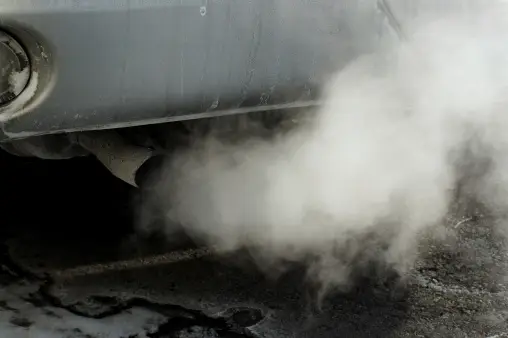November 27, 2023
What kind of pipe is best for exhaust?
The choice of pipe for an exhaust system depends on several factors, including the type of vehicle, engine, intended use, and personal preferences. There are various materials and types of exhaust pipes to consider:
- Steel: Steel is a common choice for exhaust pipes due to its durability, cost-effectiveness, and resistance to corrosion. There are different types of steel, including aluminized steel and stainless steel. Stainless steel is more corrosion-resistant and is often used in high-performance and aftermarket exhaust systems.
- Aluminized Steel: Aluminized steel is steel that has been coated with an aluminum-silicon alloy to enhance corrosion resistance. It offers a good balance of durability and cost and is often used in OEM (original equipment manufacturer) exhaust systems.
- Stainless Steel: Stainless steel is highly corrosion-resistant and can withstand extreme temperatures. It is commonly used in high-performance and aftermarket exhaust systems because it maintains its appearance and performance over time.
- Titanium: Titanium is extremely lightweight and has excellent corrosion resistance. It is often used in high-performance and racing exhaust systems, but it can be expensive.
- Inconel: Inconel is a superalloy known for its high-temperature resistance and durability. It is used in some high-performance and exotic car exhaust systems.
- Copper: Copper is rarely used for exhaust pipes due to its high cost and limited availability. It is sometimes used in specialized applications for its thermal conductivity properties.
In addition to the material, the diameter and shape of the exhaust pipe also play a significant role in exhaust system performance. The choice of pipe diameter should be matched to the engine’s output and the intended use of the vehicle. Larger-diameter pipes can provide better exhaust flow and performance, but they may reduce low-end torque. Smaller-diameter pipes may provide better low-end torque but can restrict high-end performance.
Ultimately, the “best” exhaust pipe for your vehicle depends on your specific requirements and preferences. If you’re unsure about the best choice for your vehicle, it’s a good idea to consult with a professional mechanic or exhaust system specialist who can help you select the right components for your needs.
How does exhaust pipe affect performance?
The exhaust pipe plays a significant role in the overall performance of a vehicle’s engine. It affects engine performance in several ways:
- Exhaust Gas Flow: The exhaust pipe is responsible for channeling the hot, pressurized exhaust gases produced during the combustion process out of the engine and into the atmosphere. A well-designed exhaust system with smooth, unobstructed piping can promote efficient exhaust gas flow. When exhaust gases can exit the engine quickly and smoothly, it reduces back pressure and allows the engine to “breathe” better. This improved flow can result in increased horsepower and torque, as the engine can expel waste gases more effectively.
- Back Pressure: While some level of back pressure is necessary for proper engine performance, excessive back pressure can be detrimental. If the exhaust pipe is too restrictive or the diameter is too small for the engine’s needs, it can create excessive back pressure. This back pressure can limit the engine’s ability to expel exhaust gases, reducing overall performance and efficiency.
- Tuning: The design and length of the exhaust pipe can also impact the tuning of the engine. Some exhaust systems are tuned to enhance low-end torque, while others are designed for high-end power. The choice of exhaust components, including the pipe diameter and mufflers, can influence where in the RPM range the engine produces its peak power and torque.
- Sound and Noise Control: The exhaust pipe, along with mufflers and resonators, affects the sound produced by the engine. The size and design of the exhaust components can influence the exhaust note, from quiet and mellow to aggressive and loud. Sound control is essential for meeting noise regulations and personal preferences.
- Emissions: The exhaust system, including the catalytic converter, plays a crucial role in reducing harmful emissions from the engine. A properly functioning exhaust system ensures that the engine meets emissions standards and operates cleanly.
In summary, the exhaust pipe is an integral part of the overall engine performance equation. A well-designed exhaust system can improve engine efficiency, increase horsepower and torque, influence the engine’s power band, and enhance the vehicle’s overall driving experience. However, it’s essential to strike the right balance between optimizing exhaust flow and maintaining necessary back pressure to achieve the desired performance characteristics for a specific vehicle and application. Modifying the exhaust system should be done carefully and in consideration of the vehicle’s intended use and local regulations.

